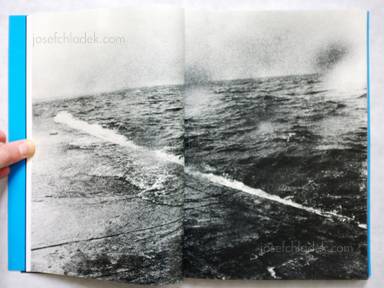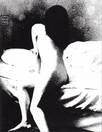Takuma Nakahira - For a Language to Come, Steidl/Edition 7L, 2001, Göttingen

Takuma Nakahira - For a Language to Come (Book spine)

Takuma Nakahira - For a Language to Come (Book back)

Takuma Nakahira - For a Language to Come (Book front)

Takuma Nakahira - For a Language to Come (Front)

Takuma Nakahira - For a Language to Come (Spine)

Takuma Nakahira - For a Language to Come (Back)

Sample page 1 for book " Takuma Nakahira – For a Language to Come", josefchladek.com

Sample page 2 for book " Takuma Nakahira – For a Language to Come", josefchladek.com

Sample page 3 for book " Takuma Nakahira – For a Language to Come", josefchladek.com

Sample page 4 for book " Takuma Nakahira – For a Language to Come", josefchladek.com

Sample page 5 for book " Takuma Nakahira – For a Language to Come", josefchladek.com

Sample page 6 for book " Takuma Nakahira – For a Language to Come", josefchladek.com

Sample page 7 for book " Takuma Nakahira – For a Language to Come", josefchladek.com

Sample page 8 for book " Takuma Nakahira – For a Language to Come", josefchladek.com

Sample page 9 for book " Takuma Nakahira – For a Language to Come", josefchladek.com

Sample page 10 for book " Takuma Nakahira – For a Language to Come", josefchladek.com

Sample page 11 for book " Takuma Nakahira – For a Language to Come", josefchladek.com

Sample page 12 for book " Takuma Nakahira – For a Language to Come", josefchladek.com

Sample page 13 for book " Takuma Nakahira – For a Language to Come", josefchladek.com
Other books by Takuma Nakahira (see all)




Other books tagged Reprint (see all)









Other books tagged Parr Badger Vol. 1 (see all)









Other books tagged Japanese (see all)









Other books tagged Black & White (see all)









Other books by Steidl/Edition 7L (see all)






Books to shop at anzenbergergallery-bookshop.com
Reprint, printrun 1500, part of the "Japanese Box" edited by Christoph Schifferli.
Published in 1970, For a Language to Come is recorded in the history of photography as the first photobook by Takuma Nakahira, the photographer who brought about a turning point in contemporary Japanese photography from the late 1960s to the early 1970s by radically breaking away from the existing image aesthetics at that time. This book consists of one hundred black and white photographs including his work from the legendary photography magazine Provoke. However, forty years after the publication of the original book, we have not as yet had the opportunity to examine (and enjoy) his works enough with the exception of a few photographs that has been repeatedly introduced on various occasions (this is particularly true in Europe and the U.S. where the history of contemporary Japanese photography remains less appreciated). Through radical self-critique, Nakahira would repudiate much of this early body of work in his 1973 essay, “Why an Illustrated Botanical Dictionary?” and considered it as something that must be overcome. Yet, for us to reconsider the meaning of the author’s rejection of his inaugural work, it is extremely valuable to know what the works themselves show. Has our history of photography finally caught up with Nakahira? (From the text to the 2010 republication by Osiris)
Pages: 192
Place: Göttingen
Year: 2001
Publisher: Steidl/Edition 7L
Size: 21 x 30 cm (approx.)





















